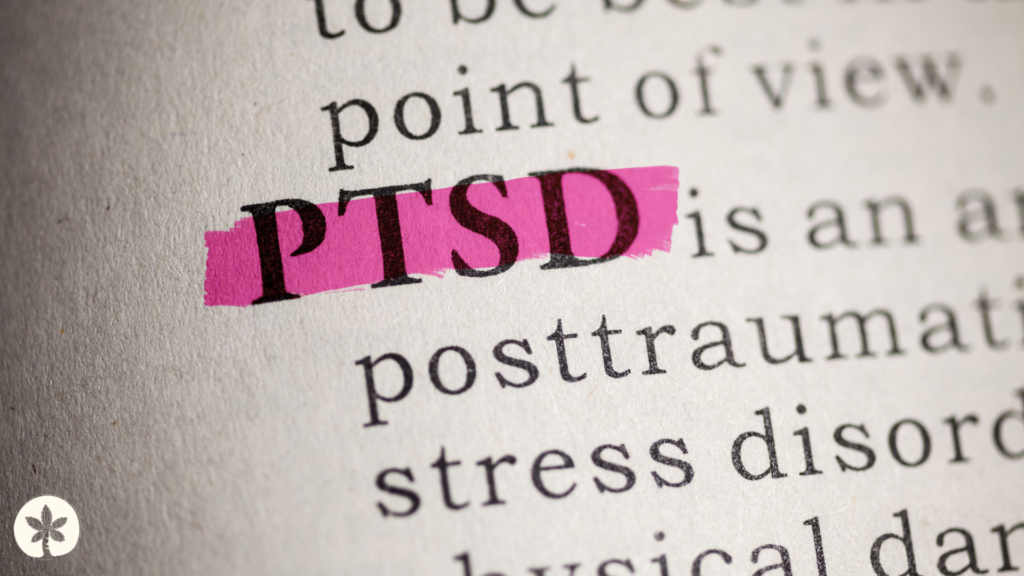Post-Traumatic Stress Disorder (PTSD) is a mental health condition that can develop after someone experiences or witnesses a traumatic event. While many people associate PTSD with combat veterans, it affects a wide range of individuals, from survivors of abuse to those who have been through accidents, natural disasters, or other traumatic experiences. In today’s fast-paced and often overwhelming world, it’s essential to understand what PTSD is, why it’s crucial to treat it, and how counseling can help individuals regain control of their lives.
At Saname Counseling, located in McAllen, Texas, we offer specialized counseling services for those dealing with PTSD. Our goal is to provide a safe, supportive environment where individuals can explore their trauma, work through their symptoms, and reclaim their sense of peace.
What is PTSD?

PTSD occurs when a person has difficulty recovering after experiencing or witnessing a terrifying event. While it’s natural to feel afraid, anxious, or stressed after such events, individuals with PTSD may continue to feel these emotions long after the danger has passed.
Common symptoms of PTSD include:
- Intrusive Memories: Flashbacks, nightmares, and recurrent, distressing thoughts related to the traumatic event.
- Avoidance: Avoiding places, people, or situations that remind them of the traumatic experience. Some individuals may also avoid discussing the trauma altogether.
- Negative Changes in Thinking and Mood: Persistent negative thoughts, feelings of hopelessness, detachment from loved ones, or a lack of interest in activities once enjoyed.
- Hyperarousal: Increased irritability, difficulty concentrating, trouble sleeping, and being easily startled or on edge.
These symptoms can be debilitating, affecting a person’s ability to work, maintain relationships, and enjoy daily life. PTSD is not a sign of weakness; it is a serious condition that requires professional treatment and support.
PTSD in Today’s Society
The importance of recognizing and addressing PTSD cannot be overstated, particularly in today’s society. With the rising awareness of mental health issues and the acknowledgment of trauma’s long-term effects, more people are seeking help—but many still suffer in silence.
PTSD can stem from a wide range of experiences, including:
- Military Combat: Veterans and active-duty service members are at high risk for PTSD due to their exposure to combat situations and the life-threatening conditions they often face.
- Sexual or Physical Assault: Survivors of abuse, whether domestic violence or sexual assault, often experience PTSD as a result of their trauma.
- Accidents and Natural Disasters: Survivors of car accidents, natural disasters, and other unexpected events can develop PTSD from the sudden shock and danger they faced.
- Childhood Trauma: Many individuals who experienced neglect, abuse, or abandonment during their childhood may develop PTSD later in life, even if the trauma occurred years ago.
With the prevalence of these situations, it’s crucial for communities to understand the importance of seeking help and how counseling can make a significant difference in the lives of those struggling with PTSD.
Why is Treating PTSD So Important?
Without proper treatment, PTSD can have long-lasting effects on an individual’s mental, emotional, and even physical health. Here are a few reasons why it’s vital to seek counseling and therapy for PTSD:
- Preventing Worsening Symptoms: PTSD can worsen over time if left untreated, leading to more severe symptoms such as increased depression, anxiety, and suicidal thoughts. Counseling can help individuals process their trauma and begin the healing journey before symptoms escalate.
- Improving Relationships: Individuals with PTSD often struggle to maintain healthy relationships. They may feel disconnected from loved ones, have difficulty trusting others, or become emotionally distant. Therapy can help them rebuild their relationships by addressing these challenges head-on.
- Restoring Daily Functioning: PTSD can make everyday tasks feel overwhelming, from going to work to participating in social activities. Treatment allows individuals to regain control over their lives and start functioning normally again.
- Reducing Physical Health Issues: Research has shown that individuals with PTSD are at higher risk for physical health issues, including heart disease and chronic pain, due to the constant state of stress and hyperarousal their bodies experience. Counseling can reduce this stress and improve overall health.
- Reclaiming a Sense of Safety and Control: One of the most damaging effects of PTSD is the feeling of being unsafe or out of control. Counseling helps individuals regain a sense of stability, allowing them to feel more secure in their daily lives.
How Counseling Can Help Treat PTSD

Counseling is one of the most effective treatments for PTSD, offering individuals the opportunity to work through their trauma in a safe and supportive environment. At Saname Counseling in McAllen, we use evidence-based therapeutic techniques to help our clients heal and move forward.
Cognitive Behavioral Therapy (CBT)
CBT is a widely used form of therapy that focuses on identifying and changing negative thought patterns. For individuals with PTSD, CBT can help reframe thoughts about the traumatic event, reducing feelings of guilt, shame, and fear. It also helps clients learn healthier ways to cope with stress and anxiety.
Eye Movement Desensitization and Reprocessing (EMDR)
EMDR is a specialized form of therapy that has been proven to be highly effective in treating PTSD. During EMDR sessions, clients recall distressing memories while engaging in guided eye movements, which helps reprocess the traumatic event in a way that reduces its emotional intensity. This technique can help clients break free from the cycle of intrusive thoughts and flashbacks.
Mindfulness and Relaxation Techniques
For many individuals with PTSD, hyperarousal and anxiety are significant issues. Mindfulness-based therapies help clients learn how to stay grounded in the present moment, reducing the impact of anxiety and helping them feel more in control of their emotions. Relaxation techniques such as deep breathing and progressive muscle relaxation can also reduce the physical symptoms of PTSD.
Supportive Counseling
Sometimes, the most important aspect of PTSD treatment is simply having someone to talk to. Supportive counseling provides a safe space for individuals to share their experiences, express their feelings, and receive validation for what they’ve gone through. It also helps build trust and rapport with the therapist, which is critical for long-term healing.
PTSD Counseling at Saname Counseling in McAllen

At Saname Counseling, we understand that seeking help for PTSD can be a daunting step. That’s why our team of experienced clinicians is here to guide you through every step of the healing process. Located at 813 N Main St, STE 410, McAllen, Texas 78501, our office provides a calm and supportive environment where individuals can feel safe discussing their trauma and beginning their journey toward recovery.
We offer personalized, trauma-informed care that focuses on each individual’s unique experience. Whether you’re a veteran struggling with combat-related PTSD, a survivor of abuse, or someone dealing with the aftermath of an accident or loss, our team is here to help. Through a combination of CBT, EMDR, and other evidence-based therapies, we will work with you to reduce your symptoms and help you regain control of your life.
Take the First Step Toward Healing
If you or a loved one are dealing with PTSD, you don’t have to face it alone. Counseling and therapy are powerful tools that can help you process your trauma, reduce your symptoms, and move forward toward a brighter, more peaceful future.
At Saname Counseling in McAllen, we are committed to helping our clients find the support they need to heal. Contact us today to schedule an appointment and take the first step on your journey toward recovery. For more information, visit sanametx.com or reach out to us directly at hello@sanametx.com.

